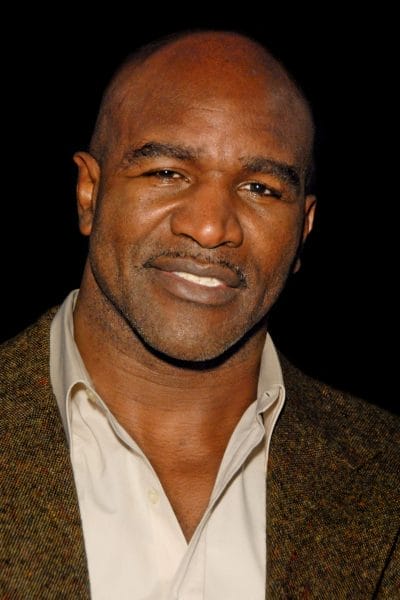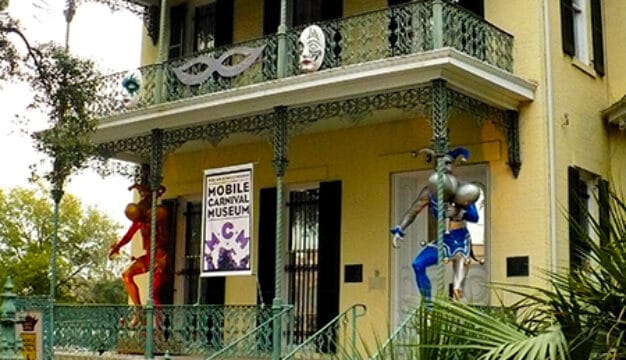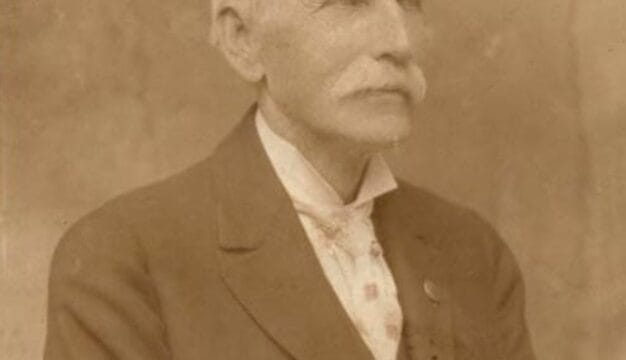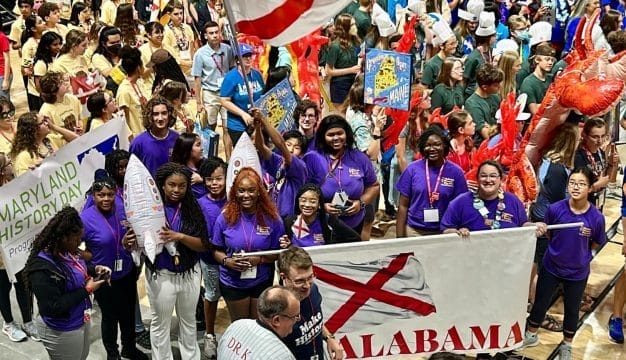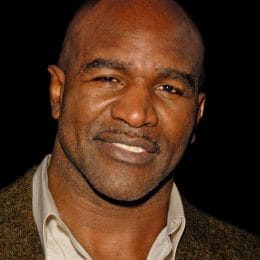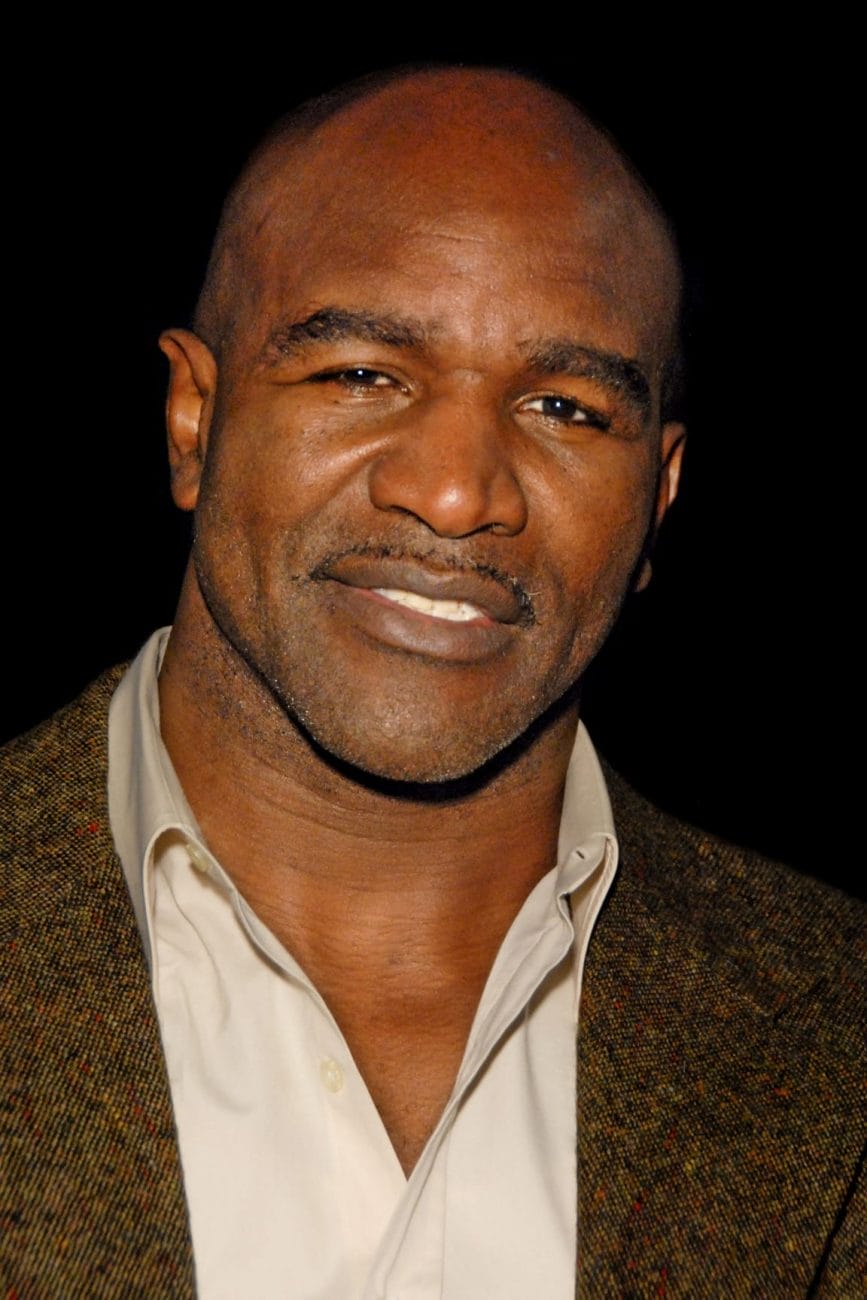Evander Holyfield
Evander Holyfield, a native of Atmore, Escambia County, is a former heavyweight professional boxer known for defeating heavyweight greats George Foreman, Larry Holmes, and Mike Tyson. Over the course of his career, he was a five-time World Heavyweight Champion with a professional record of 44 wins, 10 losses, and 2 draws with 29 knock outs (KOs). Holyfield is an inductee of the Alabama Sports Hall of Fame (2015), the International Sports Hall of Fame (2015), and the International Boxing Hall of Fame (2017). His nickname is “The Real Deal.”
Holyfield was born on October 19, 1962, in Atmore to mill-worker Ison Coley and Annie Laura Holyfield. He was the youngest of nine children. His father left home early in his youth, and his mother moved the family to Atlanta, Georgia, where Holyfield was largely raised and which he considers his home. His mother worked as a cafeteria cook. He took up boxing around the age of eight and was a highly ranked boxer by the time he graduated from high school. He preferred football as a youth but was considered small and played little, so he focused on boxing instead. In the 1983 Pan American Games in Venezuela, he won a Silver Medal for placing second in the boxing competition. The following year he won a Golden Gloves title and a Bronze Medal for placing third in the 1984 Summer Olympics in Los Angeles, California. He turned professional following the Olympics.
From 1984 until 1992, Holyfield amassed a 28-0 record. Competing in the Cruiserweight division (for boxers weighing between 175 and 200 pounds), he won his first title, the World Boxing Association (WBA), in 1986 and followed that with the International Boxing Federation (WBF) title in 1987 and the World Boxing Council (WBC) title in 1988. Holyfield soon moved up to the Heavyweight division, weighing just over 200 pounds, and captured the WBC Continental Americas title in 1989. The following year, Holyfield bested in three rounds the taller and heavier WBA, WBF, and IBF heavyweight champion James “Buster” Douglas to take the titles. Douglas had just defeated heavyweight “Iron” Mike Tyson, then the undefeated and undisputed champion, in one of boxing’s great upsets. Holyfield then defeated boxing icons George Forman in 1991 and Larry Holmes in 1992. Most of his victories during this span came by knock out (KO), in which opponents fail to respond to the referee’s count of ten, or by technical knockout (TKO) in which the referee ends the fight, deciding that the boxer is unable to continue, or one side “throws in the towel” signifying their boxer cannot continue the match.
In 1992, Holyfield lost his WBA, WBC, and IBF heavyweight titles to the larger, younger, and undefeated Riddick Bowe, who had won the 1988 Summer Olympics Silver medal. He fought Bowe twice more in a five-match span, winning the rematch in 1993 and regaining two of the titles. Though favored in 1995, he lost the titles to the undefeated challenger Michael Moorer in an upset and lost to Bowe again that year by a knockout, though no titles were at stake.
Holyfield and Tyson finally fought a much-anticipated match in 1996. Coming off a knockout victory over former champion Bobby Czyz, the 32-3 Holyfield challenged the intimidating 45-1 Tyson for the WBA title. Tyson, having won 39 matches by knockout, was heavily favored, but in an upset win, Holyfield took Tyson’s punches, unlike most other fighters. He also out-boxed Tyson for much of the match and won the title with an 11th-round TKO. After the fight, Tyson related that he did not remember much of the last round. In an even more notable rematch, in 1997, Tyson bit Holyfield’s right ear in the third round, prompting the referee to stop the fight and consider disqualifying Tyson. Holyfield’s doctor said the match could continue, however. Tyson then bit Holyfield’s left ear, though unbeknownst at the time to the referee. When the round ended, the referee learned of the second bite and disqualified Tyson, thus ending the match. Tyson and his team later complained that he was responding to illegal head butts from Holyfield that the referee ignored.
Following the Tyson matches, Holyfield won his next two bouts to retain two of the titles but entered a difficult stretch from 1999 through 2004. In back-to-back matches with British fighter Lennox Lewis, Holyfield fought the taller and heavier Lewis to a draw to retain two titles, then lost the second match by unanimous decision, losing the titles. The next three matches were against the 36-3 John Ruiz and resulted in a win, a loss, and a draw for Holyfield, bringing his record to 37-5 and two draws. Following a victory in June 2002, he then lost three matches in a row as he entered his early 40s. Following the third defeat, a November 2004 upset in which he lost badly, the New York State Athletic Commission placed Holyfield on an indefinite medical suspension because of his poor performance and called for a medical evaluation. In addition, other members of the boxing world began calling for the 38-8-2 Holyfield to retire. He formally appealed the suspension and opposed suggestions that he retire. He did not fight for nearly a year and a half and was then cleared to box again.
In August 2006, Holyfield returned to the ring and won four matches in a row. He lost the next two fights to Russian champions Sultan Ibragimov in October 2007 and Nikolai Valuev in December 2008. His next fight was a TKO against South African Francois Botha in April 2010, earning Holyfield the WBF title, his last. He officially retired in 2014, at the age of 51, with a 44-10-2 record. Holyfield was named the Boxing Writers Association of America’s Fighter of the Year in 1990, 1996, and 1997 and was named ABC Wide World of Sports Athlete of the Year for 1993, and was also inducted into the Atlanta Sports Hall of Fame.
Holyfield has also had a high-profile presence outside the boxing ring, endorsing commercial products, making guest appearances on television shows, and taking turns on the dance floor in Dancing with the Stars in 2005 and on similar shows in the United Kingdom and Argentina. Despite his considerable earnings from boxing and from his celebrity endorsements and activities (estimates are several hundred million dollars), Holyfield has had serious financial difficulties, having been in considerable debt and giving generously to his family and charitable and religious activities. He has also endured accusations of using performance-enhancing drugs during his boxing career, allegations which he has challenged and sought to disprove.
Holyfield has been married several times and has 11 children. One of his sons, Elijah Holyfield, played football for the University of Georgia Bulldogs and has played in the National Football League. Daughter Evette Ashley Holyfield is a noted stylist and fashion designer.
